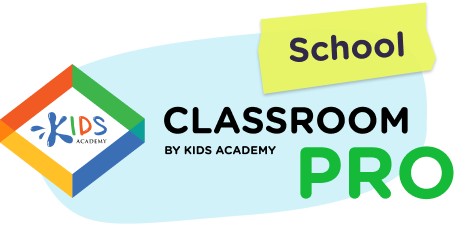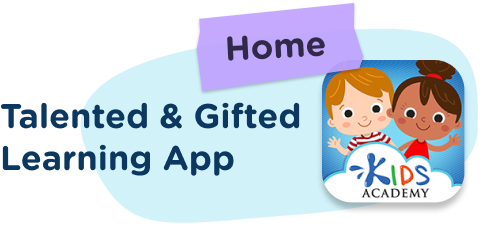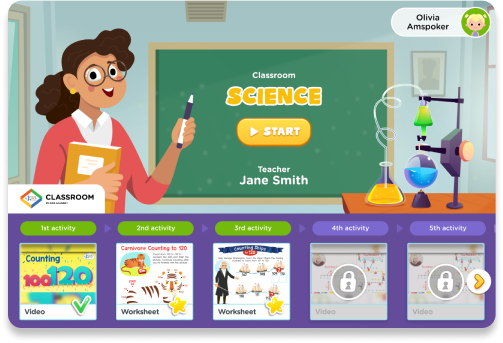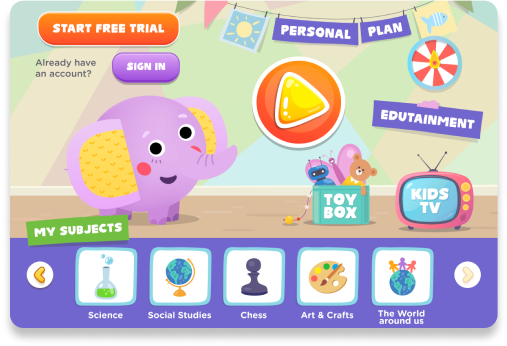Addition Practice Normal Math Worksheets for Ages 5-6 - Page 2
28 filtered results
-
From - To
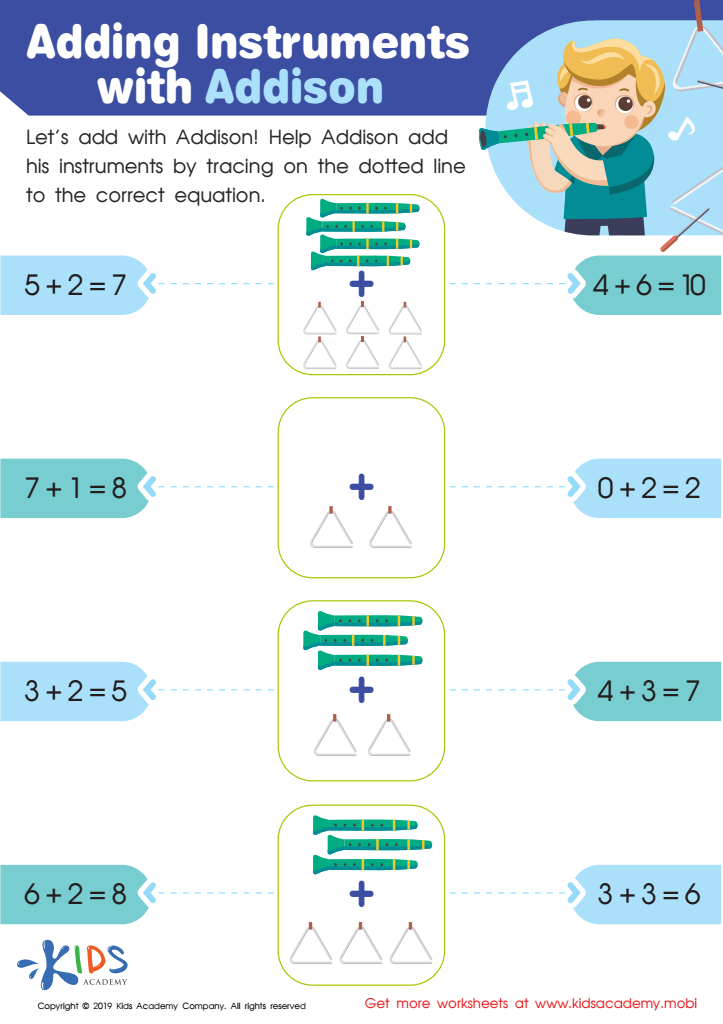

Adding Instruments with Addison Worksheet
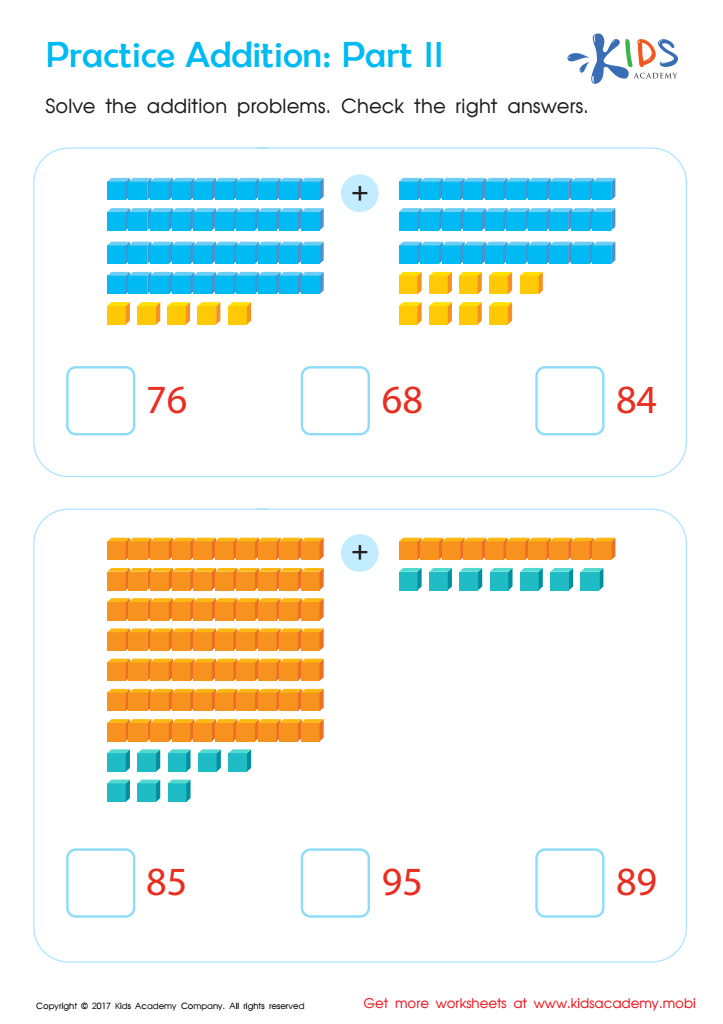

Practice Addition: Part 2 Worksheet
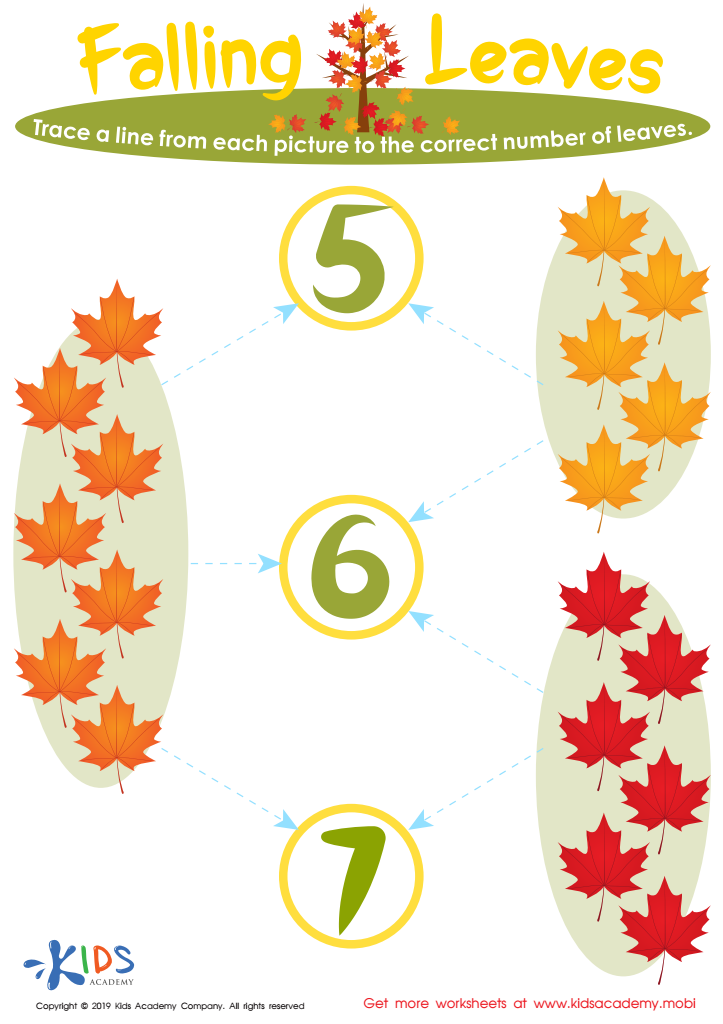

Falling Leaves Worksheet
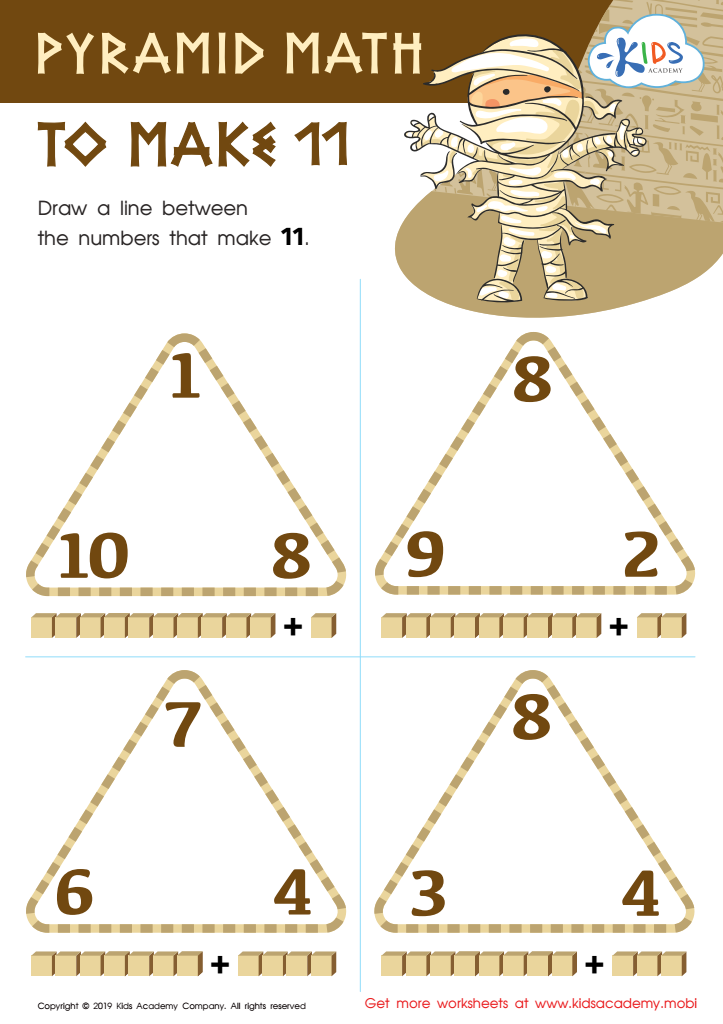

Pyramid Math to Make 11 Worksheet
Addition Practice Normal Math for ages 5-6 is crucial for several reasons. First and foremost, it lays the foundation for a child's numeracy skills, establishing a strong base for future mathematical understanding. Early competency in addition not only enhances a child's confidence, but also increases their enthusiasm for learning more complex concepts later on.
Additionally, engaging in regular addition practice helps develop critical cognitive skills, such as problem-solving and logical reasoning. These skills transcend math and empower children to think analytically in various areas of their lives. Practicing addition also fosters fine motor skills and hand-eye coordination when using manipulatives or writing numbers, enhancing overall academic readiness.
Moreover, effective addition practice can create a positive and fun learning atmosphere. Teachers and parents can turn these activities into games, making them enjoyable experiences that strengthen bonds while reinforcing essential skills. Lastly, a strong early math foundation is linked to academic success in higher grades, reducing the likelihood of math anxiety and fostering a lifelong appreciation for learning. Therefore, parents and teachers should prioritize addition practice as a vital tool in supporting children’s overall development and academic journey.
 Assign to My Students
Assign to My Students
















